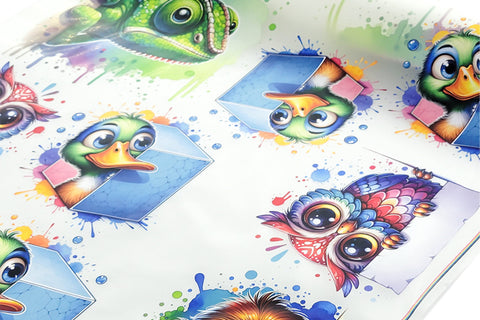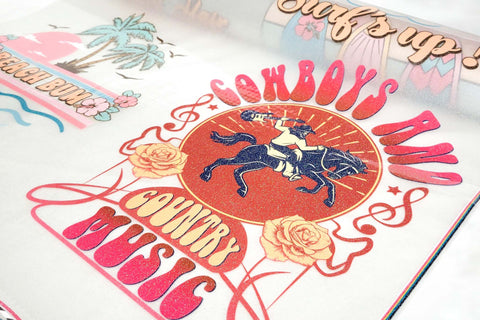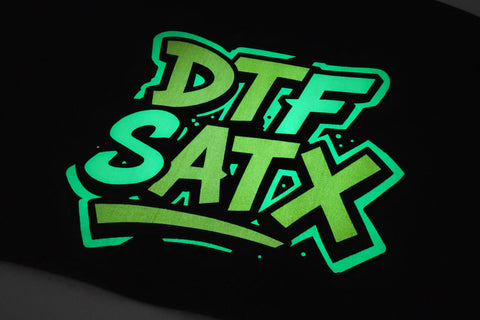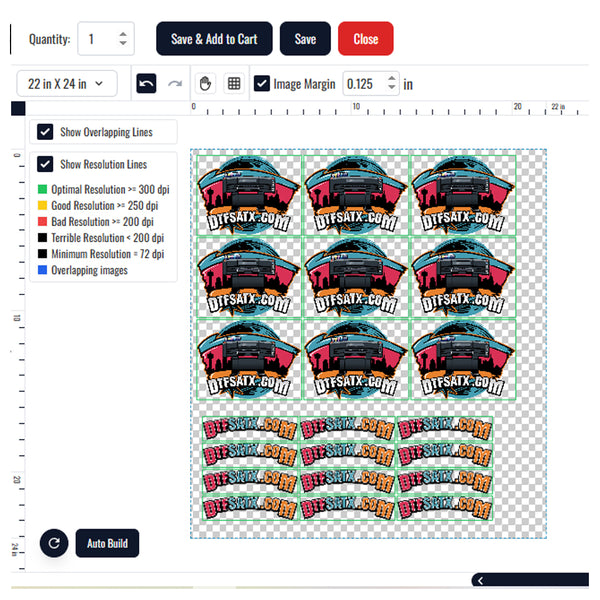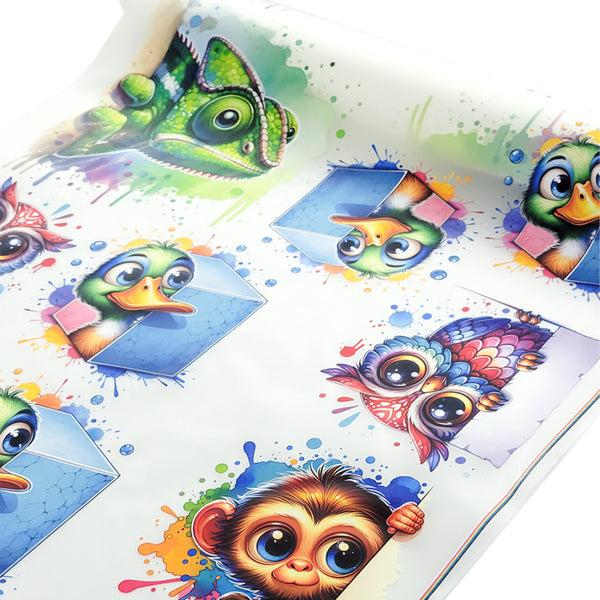Sublimation printing is an amazing way to create vibrant, durable designs for everything from t-shirts and tumblers to home decor and promotional items. However, even experienced crafters and small business owners encounter sublimation issues that can ruin a great design. Knowing how to avoid these common sublimation mistakes can save you time, money, and frustration.
Whether you're a beginner or running a custom print business, mastering the sublimation process is key to producing consistent, high-quality results.
Common Sublimation Mistakes You Can Easily Avoid
Understanding how sublimation printing works and what can go wrong is essential for better prints.
-
Blurry or ghosted images
-
Dull or faded colors
-
Press marks or scorching
-
Poor ink transfer
-
Image alignment problems
Let’s explore the main reasons sublimation projects fail and what you can do to avoid them.
The Most Common Issues in Sublimation Printing
Here are the most common issues and how to prevent them from happening.
Blurry or Ghosted Images
One of the most frequent sublimation issues is ghosting. This happens when the paper shifts during pressing or there's too much moisture in the material. Ghosted images appear blurry or double-printed, which makes designs look unprofessional.
To avoid this, always use heat-resistant tape to secure the paper and allow your project to cool fully before moving it.
Washed Out or Faded Colors
If your design looks vibrant on paper but faded on the substrate, you're likely using the wrong blanks or incorrect heat settings. Sublimation works best on polyester or poly-coated surfaces.
Ensure you're pressing at the right temperature and duration according to the blank's requirements.
Press Marks and Scorching
Too much pressure or high heat can cause fabric fibers to flatten, leaving behind square press marks or even burnt spots. You can prevent this by reducing the pressure slightly and placing a sheet of white butcher paper between your press and the garment.
For heat-sensitive items, always test a corner or scrap before a full press.
Incomplete Ink Transfer
This problem arises from low-quality paper, insufficient heat, or uneven pressure. If your design is patchy, check your heat press calibration and ensure you're using premium sublimation paper.
It's also a good idea to pre-press fabric to eliminate moisture and wrinkles.
Misaligned Designs
A crooked or off-center image can ruin an otherwise perfect print. This typically happens when the design isn’t properly aligned before pressing. Use a t-shirt alignment ruler, fold lines, or guides to center your image correctly every time.
Using the Wrong Blanks
Sublimation requires specific materials to work properly. Using 100% cotton or uncoated surfaces will result in poor ink absorption. Always check the label or source your materials from reputable suppliers. For best results, choose blanks that are labeled for sublimation use.
Pro Tip: For a breakdown of the differences between sublimation and other methods like DTF, check out our ultimate guide to DTF vs sublimation printing.
Advanced Tips to Improve Your Sublimation Results
 Avoiding common mistakes is just the beginning. These tips will help you fine-tune your process and elevate your sublimation game.
Avoiding common mistakes is just the beginning. These tips will help you fine-tune your process and elevate your sublimation game.
Master Color Management
One of the trickiest parts of sublimation is getting the colors just right. This starts with installing the correct ICC color profile for your ink and printer. Without it, your printer won’t accurately translate colors, leaving your designs off-tone.
Maintain Your Printer Regularly
Clogged nozzles, ink buildup, or old firmware can cause print quality issues. Run nozzle checks weekly, clean print heads monthly, and keep your printer in a temperature-controlled environment. Maintenance is the backbone of consistent print quality.
Avoid Overpressing
More pressure isn’t always better. Applying too much heat or pressure can lead to bleeding, scorching, or blurry designs. Use a medium, even pressure and double-check temperature settings for your specific blank material.
Embed Video: https://www.youtube.com/watch?v=QCuy5otOEhg
Always Mirror Your Design
It’s a classic mistake: forgetting to mirror your design before printing. This is especially crucial for any design with text. Most sublimation software offers an automatic mirror setting to make it a habit to double-check before sending your print job.
Pre-Press Fabrics
Moisture in fabric is a silent killer in sublimation. A quick 5-second pre-press flattens fibers and evaporates trapped moisture, ensuring better ink bonding and color vibrancy.
Use Quality Tape
Low-grade heat tape can cause stains or come loose during pressing. Invest in quality heat-resistant tape to secure your designs without risking damage. Blue or clear tapes tend to perform better than yellow versions that may leave residue.
Choose the Right Sublimation Paper
Your paper matters more than you think. Some brands release ink too quickly or unevenly. Opt for trusted paper brands like A-SUB that are known for consistent ink release and sharp detail.
Related Reading: Need help with pressing technique? Check out our sublimation dye application instructions.
Best Practices to Prevent Sublimation Errors
Improving your overall process will reduce mistakes and enhance your productivity.
-
Store sublimation paper in a cool, dry place
-
Never reuse sublimation paper
-
Use butcher paper above and below your fabric to avoid ink bleed
-
Test press new blanks before starting full production
-
Label top and bottom of your paper to prevent upside-down prints
Final Thoughts
Sublimation printing is incredibly rewarding once you get the hang of it. By recognizing common pitfalls and making simple adjustments, you can avoid costly mistakes and deliver high-quality, professional results every time.
At DTF San Antonio, we support creators, entrepreneurs, and small businesses with premium sublimation and DTF printing supplies. Whether you’re printing at home or running a full-scale operation, using the right tools makes all the difference.
Explore our selection of heat and UV DTF transfers, gang sheet printing, and more – we’re here to help you print with confidence!
